★★★½
“Fit for most purposes.”
 This is a very small-scale and restrained production, which unfolds, largely in real time, over one afternoon in the single location of a cross-fit gym. Athlete Sam (Jerue) is set for an attempt to see five world records in a 30-minute span, supported by her trainer Shane (Grosse) and under the eagle eye of adjudicator Alec (Sawyer) – it’s clearly intended to be the Guinness Book of World Records, but their name is never mentioned! However, a fly in the ointment shows up, just minutes before Sam is scheduled to start. Her husband, Charlie (Kershisnik), from whom she is currently separated, arrives at the gym, followed rapidly by Sam getting served with divorce papers, in what can only be called a dick move.
This is a very small-scale and restrained production, which unfolds, largely in real time, over one afternoon in the single location of a cross-fit gym. Athlete Sam (Jerue) is set for an attempt to see five world records in a 30-minute span, supported by her trainer Shane (Grosse) and under the eagle eye of adjudicator Alec (Sawyer) – it’s clearly intended to be the Guinness Book of World Records, but their name is never mentioned! However, a fly in the ointment shows up, just minutes before Sam is scheduled to start. Her husband, Charlie (Kershisnik), from whom she is currently separated, arrives at the gym, followed rapidly by Sam getting served with divorce papers, in what can only be called a dick move.
This does feel very artificial, an obvious and contrived attempt to add external drama to what should be a purely internal situation: Sam versus herself, in an effort to push further than anyone has gone before. However, it’s a little more complex than it initially seems. Charlie may appear not much more than a bad guy, yet by the end, your feelings towards him may well be modified: he’s not entirely the villain he seems. It still does feel superfluous, as if the makers weren’t confident in the ability of the central struggle to hold the audience’s attention. In some ways, they’re right. You’re watching someone do squats, or chin-ups. How exciting can that be?
The answer might be, more than you’d think. In Jerue, the makers have some who actually is a well-regarded cross-fitter, and that means there’s no stunt doubling or cut-aways. Foss simply drops the camera back to mid-range, and you get an unbroken sixty seconds of his lead actress doing what she is supposed to be doing. As someone whose fitness stops at 30 minutes of moderate intensity on the elliptical, I have nothing but respect for those who push their bodies as far as possible (unlike one reviewer of the film who wrote sneeringly, and I quote, “Cross Fit feels like a gateway drug to fascism”. I wonder what his BMI might be. Just curious). I like American Ninja Warrior, The 100 and its ilk. This is not dissimilar.
It does skirt perilously close to some of the usual sports cliches, though by this point, it’s difficult to come up with a credible scenario which doesn’t. Either your protagonist prevails over their opponent (which may be internal, as here), or they go down bravely: as Shane puts it, “Like the gladiators of old would say: let me win, and if I cannot win, let me be brave in the attempt.” That is, basically, your two categories of sports movies, and there’s not much attempt to escape the mould here. However, all the characters seem genuine; I’m not sure how much “acting” is require from Jerue the cross-fitter, playing Sam the cross-fitter, but she acquits herself reasonably well. I ended up watching the final half-hour from the elliptical, and might just have pedalled a little harder than normal.
Dir: John Foss
Star: Ashley Jerue, Demetrius Grosse, Cameron Sawyer, Noah Kershisnik





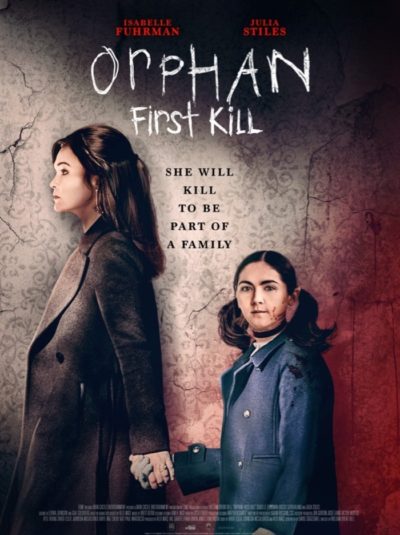 I’ve not seen the original Orphan. I suspect this does not matter very much, since what we have here is a prequel. I will admit to having been lured in by the barking mad central idea. It does justice to the lunacy, though can’t sustain itself entirely, and at least somewhat collapses under its own weight. We begin in Estonia, where Leena (Fuhrman) is a very, very angry 31-year-old. Not without justification, being trapped in a 9-year-old’s body due to a hormonal condition. Previous violence has got her committed to a secure facility, but Leena breaks out and decides to adopt the identity of Esther Albright, an American child who went missing years previously.
I’ve not seen the original Orphan. I suspect this does not matter very much, since what we have here is a prequel. I will admit to having been lured in by the barking mad central idea. It does justice to the lunacy, though can’t sustain itself entirely, and at least somewhat collapses under its own weight. We begin in Estonia, where Leena (Fuhrman) is a very, very angry 31-year-old. Not without justification, being trapped in a 9-year-old’s body due to a hormonal condition. Previous violence has got her committed to a secure facility, but Leena breaks out and decides to adopt the identity of Esther Albright, an American child who went missing years previously.  This is another example of someone simply trying to do too much on their movie. For Linch not only starred in, produced and directed this, she also edited it, did the sound design and was the colourist. It’s not hard to predict her talents are not equally divided. It’s a shame, since I really wanted to enjoy this: much like its heroine, there’s a plucky, can-do attitude present, which can only be admired. Unfortunately, anyone above the age of eight is going to be quite hard-pushed to overlook the flaws. While the action is not especially one of those, the volume there is underwhelming, and the romantic, comedic and dramatic elements are hugely variable, to put it politely.
This is another example of someone simply trying to do too much on their movie. For Linch not only starred in, produced and directed this, she also edited it, did the sound design and was the colourist. It’s not hard to predict her talents are not equally divided. It’s a shame, since I really wanted to enjoy this: much like its heroine, there’s a plucky, can-do attitude present, which can only be admired. Unfortunately, anyone above the age of eight is going to be quite hard-pushed to overlook the flaws. While the action is not especially one of those, the volume there is underwhelming, and the romantic, comedic and dramatic elements are hugely variable, to put it politely.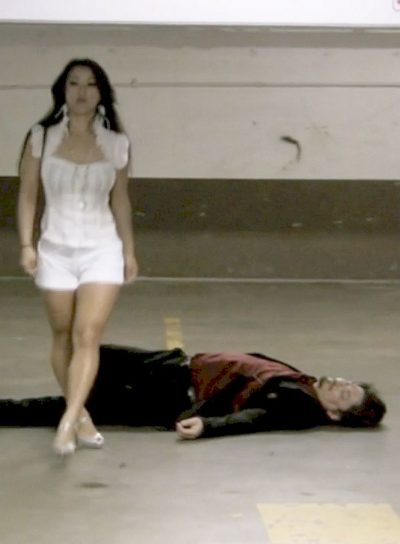 Tubi TV has become a goldmine of obscure, weird and,
Tubi TV has become a goldmine of obscure, weird and,  I spent much of the first thirty minutes here going “That can’t be Juliette Binoche.” Yet, it is, the French actress looking thoroughly unglamorous and very convincing in her portrayal of white trash trucker Sally. Her brother Dennis (Frank Grillo, whose role isn’t as big as the poster would have you believe) is in prison, and under pressure from even sketchier parties, so Sally has been delivering packages for said parties as she criss-crosses the country. He’s about to get out, so this will be her last run. She’s still shocked to discover the item in this case is a
I spent much of the first thirty minutes here going “That can’t be Juliette Binoche.” Yet, it is, the French actress looking thoroughly unglamorous and very convincing in her portrayal of white trash trucker Sally. Her brother Dennis (Frank Grillo, whose role isn’t as big as the poster would have you believe) is in prison, and under pressure from even sketchier parties, so Sally has been delivering packages for said parties as she criss-crosses the country. He’s about to get out, so this will be her last run. She’s still shocked to discover the item in this case is a  Oh, dear. Where to start? Let’s get the positives out of the way. This looks reasonable enough, and clearly was not a poverty-row production. The central idea isn’t bad either: while a vigilante killer taking out misogynistic online sexists is a fairly ludicrous concept, if you squint a bit, you can see how it could have become an acerbic comment on the toxicity of social media. And that’s all I’ve got. For any potential is ruthlessly exterminated by staggeringly feeble execution. We’re there inside two minutes, when an unnamed Russian supermodel wakes, to get a video message from two pals vacationing in Morocco, then turns on the TV immediately to see a news report about them being executed by ISIS, with the video online for all to see. Wait, what?
Oh, dear. Where to start? Let’s get the positives out of the way. This looks reasonable enough, and clearly was not a poverty-row production. The central idea isn’t bad either: while a vigilante killer taking out misogynistic online sexists is a fairly ludicrous concept, if you squint a bit, you can see how it could have become an acerbic comment on the toxicity of social media. And that’s all I’ve got. For any potential is ruthlessly exterminated by staggeringly feeble execution. We’re there inside two minutes, when an unnamed Russian supermodel wakes, to get a video message from two pals vacationing in Morocco, then turns on the TV immediately to see a news report about them being executed by ISIS, with the video online for all to see. Wait, what?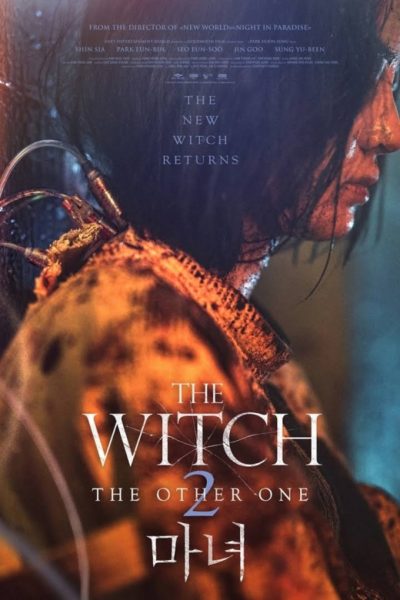 This showed up as a bit of a surprise. Obviously, even the title suggested that the makers were looking for a sequel to
This showed up as a bit of a surprise. Obviously, even the title suggested that the makers were looking for a sequel to 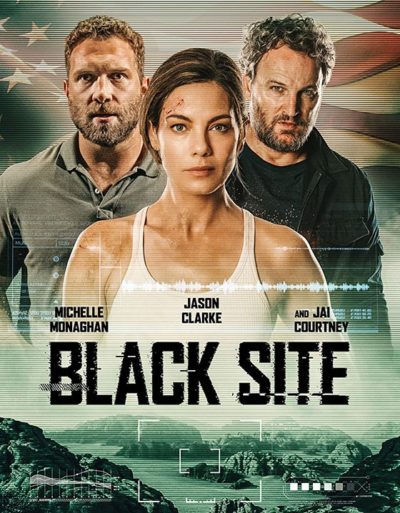 This has a fair amount in common with the disaster which was
This has a fair amount in common with the disaster which was  Despite a striking poster (well played, PR team), for the first hour, you’ll probably be wondering why this is included here. Corporate lawyer Ray Harper (Tucci) is on the road, trying to convince reluctant local farmers to sell their land for development. He’s also taking advantage of the away time to hook up with his bit on the side, Brooke Hamilton (Malcolm). Both these enterprises are rudely interrupted when the couple are pulled over by corrupt cop, Williams (Johnston), and abducted at gunpoint. They are the next “guests” on an island run by TJ (McDonald), where he and his pals can get together to hunt… The Most Dangerous Game. Except, they can’t find any of that, so have to make do with a middle-aged executive and his other woman.
Despite a striking poster (well played, PR team), for the first hour, you’ll probably be wondering why this is included here. Corporate lawyer Ray Harper (Tucci) is on the road, trying to convince reluctant local farmers to sell their land for development. He’s also taking advantage of the away time to hook up with his bit on the side, Brooke Hamilton (Malcolm). Both these enterprises are rudely interrupted when the couple are pulled over by corrupt cop, Williams (Johnston), and abducted at gunpoint. They are the next “guests” on an island run by TJ (McDonald), where he and his pals can get together to hunt… The Most Dangerous Game. Except, they can’t find any of that, so have to make do with a middle-aged executive and his other woman.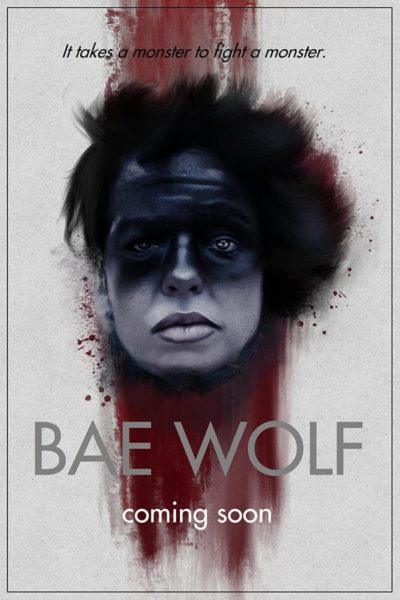 There is certainly room for reworking of the tale of Beowulf and Grendel, and making the heroines of this version female is what got me interested in it. However, the warning signs were out very quickly. Opening titles which said “Denmark… 500 AD… (-ish)” are a good sign of what to expect, for it’s clear that the makers were not happy to leave their changes at that. Indeed, they consciously embrace anachronism, especially in the dialogue, which is thoroughly modern, and could not be further from the epic poetry of the original if they tried. And I suspect they
There is certainly room for reworking of the tale of Beowulf and Grendel, and making the heroines of this version female is what got me interested in it. However, the warning signs were out very quickly. Opening titles which said “Denmark… 500 AD… (-ish)” are a good sign of what to expect, for it’s clear that the makers were not happy to leave their changes at that. Indeed, they consciously embrace anachronism, especially in the dialogue, which is thoroughly modern, and could not be further from the epic poetry of the original if they tried. And I suspect they